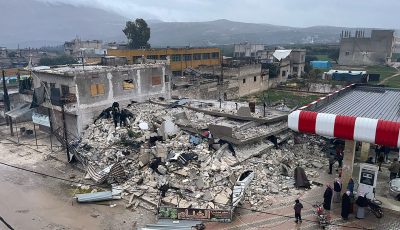Kentucky thereby
I went to school in 1965 in a town southwest of Lexington, one of two major cities of Kentucky (the other is Louisville, the site of the Kentucky Derby and mistaken as the state capital, which is actually Frankfort located between the two).
The town of my school voted against the state highway coming through to halt the inroads of “modernism,” as my Christian school kept the old character of evangelicalism alive, with one side of the railroad tracks pale, and the other shaded.
As one of the few foreign students (along with two black guys from Liberia) who were not paleface, my attention was called when I sauntered into the swimming pool across campus when the weather was warm with only shorts and towel. It did not help that a friend from Indiana U got me Playboy that came brown-papered through the school PO, the mag popular among the students who came to borrow copies at night so “they can read the articles.” I just enjoyed the pictures.
For those of us in the CNMI, Kentucky is one of the four first 15 states that joined the Union that uses the word “Commonwealth” in their full names, the other three being Massachusetts, Pennsylvania, and Virginia. It has no legal meaning but derives from commonweal or public welfare loosely from the Latin res publica, from where the word “republic” comes from. The democratic nature of the word is the emphasis on “the common consent of the people” on government rather than the royal colony status from the monarch of England.
My memory of Kentucky of the mid-’60s is not our focus, though elected official Kim Davis’ refusal to issue same-sex marriage licenses as mandated by the U.S. Supreme Court—not in line with her Apostolic Christian Church beliefs—is prepared to weather the contempt of court conviction, ironically ala MLK in Selma, Alabama of an earlier era, in her articulation. Her obstinacy in 2015 is misplaced for she mixes religious belief with that of civil law.
Not unusual to the state of my familiar, save what was considered understandable in the ’60s is hardly expected in 2015. But then, so is the annual two-minute ritual of the running of the Kentucky Derby where folks dress up in their historic fineries and act appropriate of the Lord’s Court of England. It spawned a two-week festival of horses.
The horse farms of Kentucky are well manicured, the white fences annually brushed with paint. I once wryly commented that the farms looked better equipped than the public schools—an unsolicited view expressed by a foreigner and not locally well received. I learned to keep my mouth shut quickly, and I quietly skipped the state after two years of residence.
Two of the features of the Obama administration are its stance on individual civil rights, particularly in the choice of a living mate, and the incidence of climate change due to increased carbon emission in the atmosphere.
Heretofore, Kentucky did not recognize same-sex legal liaisons, although the judicial branch recognized the exercise of the same as one of protected civil right. Among most of my Christian brothers and sisters in Kentucky, notwithstanding the findings of science on biology and mating preferences, the incidence of same-sex behavior is considered deviant and perverse. Thereby, the locally supported Kim Davis (300 demonstrated for Kim outside her jail) is not unusual in Kentucky.
Ironically, the first two lines of the Kentucky State anthem goes, “The sun shines bright in the old Kentucky home, ‘Tis summer, the people are gay…” Of course, gay in the song, and gay in contemporary usage are quite different. Also, The old Kentucky Home song served as an anti-slavery song, as Uncle Tom’s Cabin and Abe Lincoln born in Kentucky reveal a less than obstructionist history of the state.
If same-sex union is an offense, climate change is a delusion. Pittsburgh’s steel in the late ’70s kept the air misty all day. The Cuyahoga (“crooked river” to the Iroquois) in Cleveland caught fire. Ninety-seven percent of Kentucky’s electrical power derives from burnt coal, gathered in tunnels on the slopes of Appalachia as well as mined in the open pits of western Kentucky.
Local politicians often bewail the state of the state’s economy in what is perceived to be restrictions on coal-mining operations and coal-burning plants. The scrubbers used in the plant towers amounts to diddly compared to the air pollution emitted into the air, ironically now a commonwealth of the state! Republican Mitch McConnel, the state’s senator since 1984 and the U.S. Congress’ Senate majority floor leader, relishes being the “the face of Republican obstructionism” throughout Obama’s term of office.
The burning of coal is at the heart of the ecological contradiction, and not unlike Dong Bei in China, the ash is a main culprit in the radical changes brought by unusual climate, Obama’s main focus in the recent Alaska trip.
Now my old Kentucky home reared its butt, thanks to Kim Davis of the news’ front page, and I feel I am back in the ’60s.



























